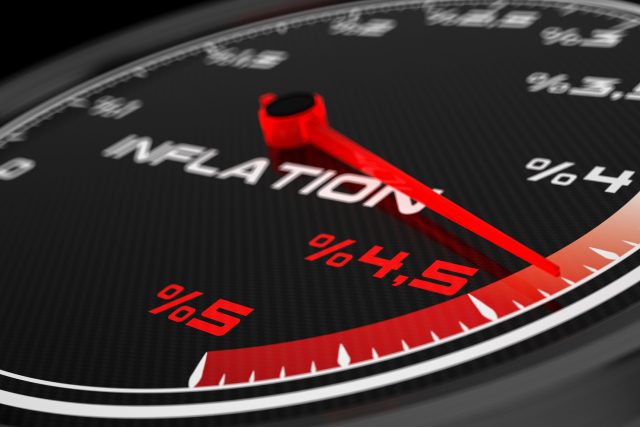This website uses cookies so that we can provide you with the best user experience possible. Cookie information is stored in your browser and performs functions such as recognising you when you return to our website and helping our team to understand which sections of the website you find most interesting and useful.
Alcohol still rising as overall inflation falls to 6.8%
Inflation has fallen to 6.8% as measured by the Consumer Price Index (CPI) but alcohol rises on both monthly and yearly rates.

Data shows the rate of inflation for food and drink is still stubbornly high at 14.8% across 12-months and rising by 0.1% on the monthly rate. Although both of these rates are falling, they are significantly higher than levels before spring 2022, where it was below 5%.
Alcohol, which is combined with tobacco for the CPI, has risen by 0.1% on the 12-month rate from 9.2% to 9.3% with the monthly rate also increasing by a similar amount.
It comes as the cost of total consumer goods fell by 1.7%, illustrating how the drinks, food and hospitality sectors have been disproportionally hit. The largest contribution to annual rises came from food and non-alcoholic beverages (at 1.71%) and the second largest contribution came from restaurants and hotels (at 1.24%).

Despite a rapid decline from 7.9% last month and highs of 11.1% last November — the highest level in 41-years — Chief Secretary to the Treasury John Glen told the BBC’s Today programme it remained “too high”, although he also said the government was still on-track to halve inflation by the end of 2023.
The news comes as energy prices ease following record price rises, which has created by the war in Ukraine and disruption to global demand. Food and non-alcoholic beverage prices had risen by 18.4% in the year to May 2023, down from 19.1% in April and from 19.2% in March, which was the highest annual rate seen for over 45 years, the ONS said.

The news follows concern about the price of beer and other alcoholic drinks – which have also seen a new duty regime implemented – with owner of JD Wetherspoons, Tim Martin, warning drinkers that £8 pints and even £10 pints could become normal, although he said that he would try to keep prices down in his own pubs. In March, he warned that the pub chain was battling “ferocious” inflationary pressures, as part of his Chairman’s Statement.
It comes as breweries, distillers and wineries have faced an unprecedented storm of price of production increases from energy, raw materials and logistics. The founder of the recently saved Brick Brewery, Ian Stewart, warned that more brewers and pubs would go to the wall without additional support or a change in market conditions.
Some brewers are ‘watering down’ their core brands in order to reduce their tax burden and keep prices the same for the consumer, it has also been reported. It was discovered that various beers including Heineken’s brand Foster’s, Greene King’s Old Speckled Hen, and Shepherd Neame’s Bishop Finger and Spitfire, have all seen reductions in their ABV recently, in order to save on the cost of alcohol duty, and subsequently offset the cost of rising prices of production.
Foster’s had reduced from 4 to 3.7% ABV, saving 3p per bottle on duty, Old Speckled Hen had reduced from 5 to 4.8%, saving 2p, Bishops Finger from 5.4% to 5.2%, saving 2p, and Spitfire was reduced from 4.5% to 4.2%, saving 3p per bottle. Carlsberg has also recently announced it will be following suit and reduce the ABV on its flagship lager to 3.4%.
Research fellow at the University of Sheffield, Colin Angus, said if every brewery cut alcohol by just 0.3%, they would collectively save around £250 million on duty payments to the Government.
Related news:

